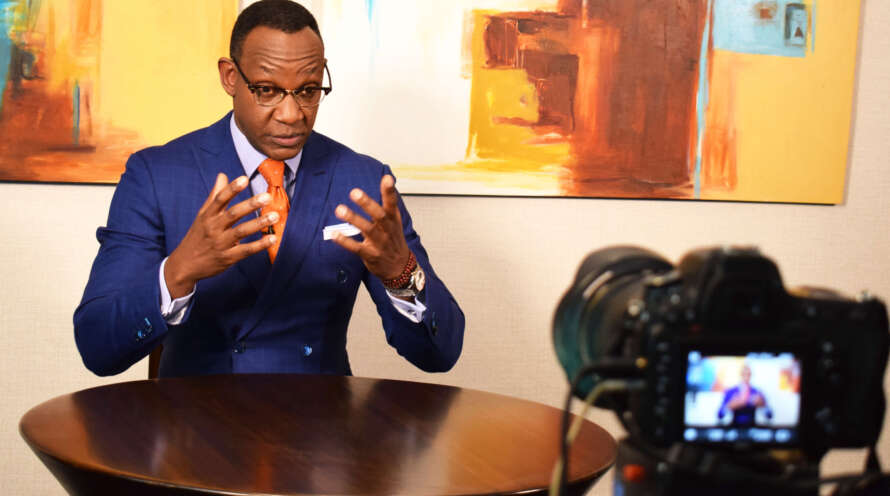In a recent study, when asked, “What are the top issues you face at work?” leaders said that 76% are on the people or relational side. You may not have anyone reporting to you but whether you’re an entrepreneur or a manager in an organisation, you have to inspire your team or clients. Leaders who practice mindfulness, and apply mindful techniques to their leadership of others, are better equipped to cope with everyday leadership challenges and create high performance in others. When you’re mindful you’re able to both observe and participate in each moment of any action you take while recognizing the implications of those actions for the longer term.
The start of being a mindful leader is self-awareness which is the ability to be aware of your own emotions, moods and feelings and the way they are impacting you. Self-awareness leads to self-confidence and self-confidence leads to success. A quote from the book Competent Manager says “Among supervisors, managers and executives a high degree of self-confidence distinguishes the best from average performers.” The self-confidence I am referring to is not arrogance or cockiness, it’s much more about feeling that whatever situation I go into, I’ll be okay. And the only way you can know that you’ll be okay, is if you know yourself well enough to be able to predict what that will be like. The first component of self-confidence is self-assessment – what are my preferences, my likes and dislikes, strengths and weaknesses. It’s important so that going into situations that are going to be challenging, you know to prepare. The second component is emotional awareness. If emotions affect us so dramatically, then we have to know what’s going on inside us and to be aware of our internal state and intuitions.

At the core of self-awareness for leaders is that they understand the impact their behavior has on others. Another two critical points in mindful leadership is to what extent do others perceive that you (the leader), is aware of your own strengths and limitations. Also, to what extent do other people notice you asking other people for feedback on how you approach things? How would you do if you had to compare to how they see you and how you perceive yourself? There is a German expression – awareness is curative. Just knowing something is curative. Just having an awareness of your limitations moves you toward protecting yourself against them.
Emotional awareness is very important for mindful leaders. Emotional awareness is demonstrating an awareness of your moods and emotions. Emotions are physiological responses that arise in response to an external stimulus. Mindful leadership is about noticing those emotions as they are arising, so that when somebody says something that upsets you, you’re tuned in to your body and you’re aware of your emotional state changing. In fact bodily sensations are easier to be aware of, so you can use them as a gut check in your emotions. The difference between pictures taken with the Nokia N76 in 2007 and today’s iPhone X is data. The iPhone has many more megapixels giving tiny bits of information from the image taken but they all add up to give a higher resolution as compared to the old Nokia with much less megapixels and data and hence much less sharp images. Similarly with emotions, the more you notice your emotions rising in you, the more pieces of data you have, the greater your emotional resolution – more awareness of your emotions.
Did you know the average person has approximately 15,000 thoughts a day and of these about 7500 are negative thoughts or about 5 negative thoughts per minute. Each of those thoughts evoke an emotional reaction although most of them you do not notice as they go on beneath the surface. But sometimes you might be sitting in a meeting with your colleagues at work and suddenly your mood falls off a cliff. It could be a reaction to one of those emotions that are going on in the background that are triggered by one of the 7500 negative thoughts you have. We respond physiologically to these emotions and that affects our mood.
So how can mindful leaders inspire performance in others? Well you have to understand those others’ purpose and contribution and what work is meaningful to them. And in order to understand what’s meaningful for others, you need to find out what’s meaningful for you. When you figure out how to create a vision that inspires you, what makes your own work meaningful and gives it purpose, it’s only then that you can inspire others. On his deathbed, Steve Jobs said “Knowing you are going to die releases you from the burden of thinking I cannot follow my heart and create a vision of who I truly want to be.” He wished he had followed this philosophy his whole life.
To become a more mindful leader
Reflect on feelings when decision-making. Ask others how they feel about potential solutions to problems. Consider issues from multiple perspectives. Be aware of biases in decision-making (e.g., women aren’t as good as men at dealing with certain issues).
A flood of research is increasingly proving that a company’s people are the differentiating factor. Mindfulness is all about “people smarts” – it’s about relating to yourself and others. In difficult times, the soft stuff often goes away. But being mindful, it turns out, isn’t so soft and lack thereof can jeopardise your ability to perform, or be compassionate in a crisis. It isn’t a luxury you can dispense with in tough times. At the end of the day, mindful leaders have employees who perform better, suffer less burnout and have more satisfied people working for them.
Derek Bbanga is a Certified Emotional Intelligence Practitioner with Genos International teaching emotional intelligence in the workplace
You can reach him at derek.bbanga@publicimageafrica.com


